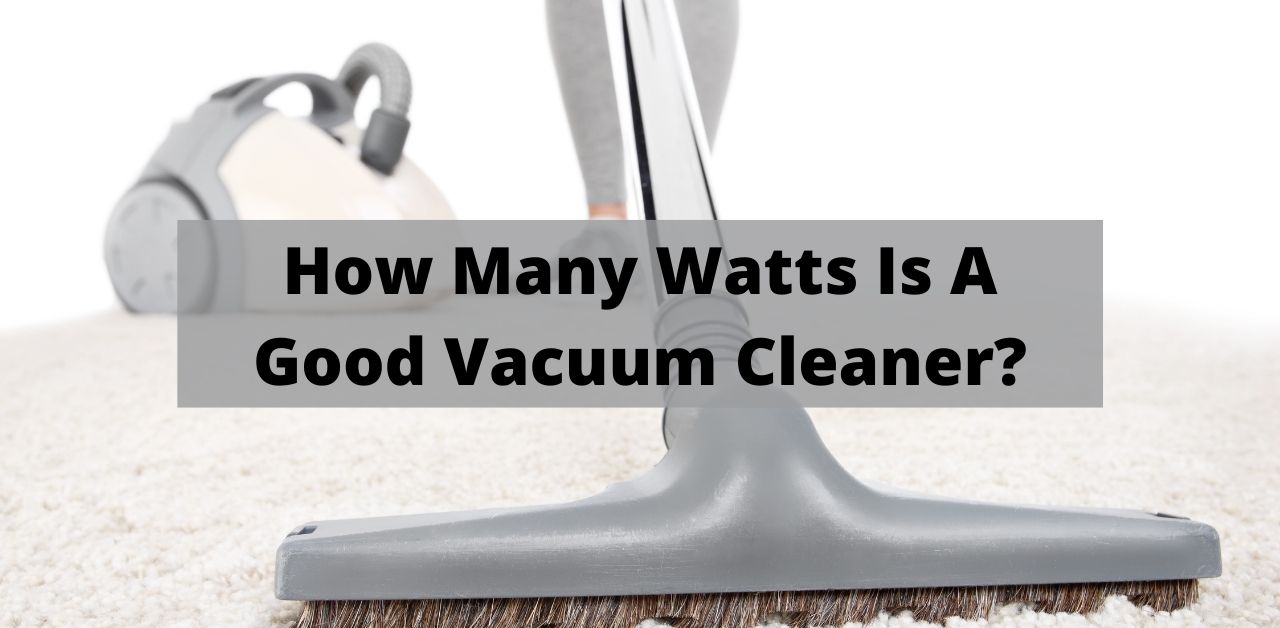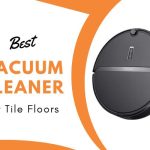A watt is simply a measure of power. Machines like vacuum cleaners display the wattage on their stickers to indicate how much energy they consume.
Others may be marked in kilowatts. kW (kilowatt), the same as watt, indicates the amount of electricity that is consumed by electrical machines on a larger scale.
In addition to vacuum cleaners, we are sure that your home has many electronic devices.
What is the device that uses the most energy? Do you have a ceiling fan? Is it your air conditioner?
That all depends on how frequently you use the device. At most, vacuum cleaners are used for about two to three hours per week.
This means they consume less electricity than other household appliances.
Please do not misunderstand us. We are referring to long-term consumption. Vacuum cleaners have a wide range of power consumption rates.
Based on averages of those figures, we receive 500-3,000 watts of energy for vacuum models that are commonly available. For power, wattage is important.
It is not advisable to purchase a vacuum cleaner that is below 500 watts since it does nothing close to cleaning. Our company is a professional company. Our specialty is vacuum cleaners.
Vaccum cleaners consume electricity, but how much is too much?
The typical wattage of a domestic vacuum cleaner is approximately 500-3,000 watts. If you do not require significant vacuuming, anything over 3,000 watts is a waste of money.
For instance, deep cleaners require more power in order to effectively clean carpets and rugs. This will ultimately depend on your specific requirements.
Any vacuum cleaner with a power output below 500 watts and above 3,000 watts is not recommended for domestic use. In the following section, we will discuss the finer details. Please continue reading.
What Is A High Or Low Power Consumption Vacuum Cleaner?
It is easy to determine whether a vacuum cleaner consumes more or less energy. Listed below are a few signs to look for.
4 Signs That A Vacuum Cleaner Is Consuming Significant Energy
- Powerful suction
- Motor that overheats more quickly
- Large and heavy
- heavy
- heavy-duty construction
4 Ways To Determine If Your Vacuum Cleaner Uses Low Energy
- Suction power of low to medium
- overheating motors
- Lightweight and easy to maneuver
- Modest design
What is the power consumption of a good vacuum cleaner?
At this point, we assume that everyone has a fairly comprehensive understanding of what watts mean in vacuum cleaners.
Let me quickly summarize everything, if you do not have a basic understanding.
High Watts and a strong suction make this an exceptional unit. A mediocre suction performance and light toned-down design translates into low power consumption.
A vacuum cleaner should have a power range of 500-2,000 watts. Our investigation led us to the sweet spot that works for almost all types of houses.
A vacuum cleaner powered by 1,300-1,400 watts is powerful enough to remove deeply embedded debris as well as carpets.
Our recommendation is to purchase one with extra features for cleaning up pet messes. The suction provided by these models is usually superior to that of other similar models.
In addition, the low-profile design is another key benefit.
The wattage of your vacuum cleaner is also determined by its type. A stick vacuum cleaner, for example, usually consumes less energy, around 320-600 watts, which is sufficient for daily use for cleaning messes.
Many upright and canister vacuum cleaners use more energy, around 700-3,000 watts, which is sufficient for cleaning tough messes.
In addition, some may even be able to deep clean carpets.
Among all vacuum cleaners, we consider a vacuum cleaner with 1,300-1,400 watts to be the best.
As a daily driver, it is ideal, but at the same time, it can also be relied upon when cleaning requires a high degree of commitment.
When you clean your home with your vacuum cleaner, you will not have to deal with overheating when you use models around 1,300-1,400 watts.
Do Your Own Calculation of Wattage Utilized by Your Vacuum Cleaner
What is the wattage of your vacuum cleaner? If the answer is no, you should find out immediately. Basic mathematics are all that is required. Continue reading.
The following formula can be used to determine how much power your vacuum cleaner consumes:
Amount of hours used multiplied by number of days used multiplied by (Appliance power (in Watts) / 1000) equals kWh
You can find out how much power your vacuum cleaner consumes by consulting its manual. The rest is straightforward.
Our vacuum cleaner’s annual power consumption is the value we receive at the end. Interested in knowing what you spend each year? You can calculate it as follows:
Calculate the annual cost of operating your vacuum cleaner by multiplying the price per kWh (in your state) by consumption (in Watts)
Your vacuum cleaner’s annual power consumption and cost are now known.
How Important Are Watt Numbers?
It is true that wattage matters. It matters a great deal! You are not required to consider the power consumption of your vacuum cleaner if you do not care about it.
Am I making sense? Let me explain.
Your vacuum cleaner’s sticker will inform you how much power it uses to run, and this is a chargeable service.
The amount of money you must pay (depending on where you reside) can easily dredge your bank account if left unmanaged.
One way or another, we are all obliged to keep an eye on our electricity bills. It will save you a lot of money if you save electricity.
In spite of the fact that money matters, the watt numbers indicate only how much power it consumes, not its performance.
Suction and airflow together constitute the performance of a vacuum cleaner.
How to reduce the power consumption of your vacuum cleaner
In the interest of overachievers, here are a few tips for reducing the power consumption of your vacuum cleaner:
- Regularly clean and replace your vacuum cleaner’s filters
- in order to maintain its performance
- Vacuuming with the correct setting
- Taking care not to make unnecessary messes
Frequently Asked Questions
Are canister vacuum cleaners more powerful than upright vacuum cleaners?
There are many factors involved when testing a vacuum cleaner’s suction power, but one that stands out is its wattage.
Generally, people believe that higher wattages result in better suction, which is true to a certain extent.
It may seem obvious, but the motor quality is crucial. Watts indicate the electric machine’s power consumption rather than its performance.
The suction power of a vacuum cleaner is a function of its performance. For this reason, we can conclude that the motor quality ultimately determines its suction power.
It does not matter whether the vacuum cleaner is a canister or an upright, the suction power is determined by its motor.
Do high wattage vacuum cleaners have any downsides or benefits?
The disadvantages of a high-watt vacuum cleaner are numerous. Nevertheless, there are also several advantages.
Among these are:
- Increased electricity costs
- disproportionate to the size of the house
- Heavy construction can result in high energy costs
Some advantages of a high wattage vacuum cleaner include:
- Cleans all kinds of tough messes
- Ideal for large homes
- Strong motor
It is true that a higher wattage indicates a more powerful motor, which ultimately results in better airflow and suction. However, this is not always the case.
People such as us are here to assist you in choosing the most appropriate vacuum cleaner for your house. Let our review articles do the work for you.






